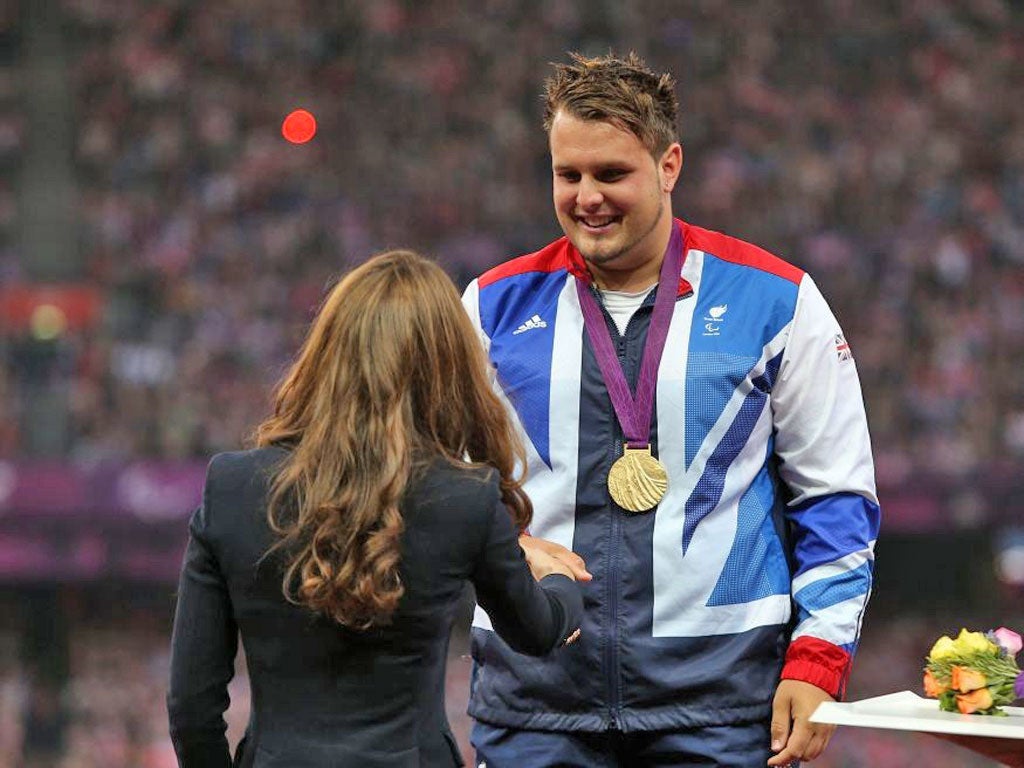Shelagh Fogarty: Spectacle of Golden Sunday pushed me towards amazement
At the Paralympics: Make no mistake, disabled superstars are a vital part of changing attitudes

Your support helps us to tell the story
From reproductive rights to climate change to Big Tech, The Independent is on the ground when the story is developing. Whether it's investigating the financials of Elon Musk's pro-Trump PAC or producing our latest documentary, 'The A Word', which shines a light on the American women fighting for reproductive rights, we know how important it is to parse out the facts from the messaging.
At such a critical moment in US history, we need reporters on the ground. Your donation allows us to keep sending journalists to speak to both sides of the story.
The Independent is trusted by Americans across the entire political spectrum. And unlike many other quality news outlets, we choose not to lock Americans out of our reporting and analysis with paywalls. We believe quality journalism should be available to everyone, paid for by those who can afford it.
Your support makes all the difference.If children start putting posters on their bedroom walls of Ellie Simmonds, David Weir and Aled Davies after the London 2012 Paralympic Games then my guess is that those hoping for greater acceptance of people with disabilities will point to these Games as the moment which provided the vital push towards breaking down barriers.
The idolising of some Paralympians was already here before these Games began but not on the scale I think we're about to see.
Baroness Tanni Grey-Thompson, long retired from competition, is without doubt a superstar. You see the scale of it when you spend any length of time with her at the Olympic Park. Young and old and everything in between – people want to meet her, talk to her, have a photo taken. As I broadcast live from the park with her for two hours every day, a steady stream of fans waves, cheers and calls her name out, thrilled to be with an extraordinary sportswoman in the most extraordinary Paralympic Games ever seen.
The disability campaigning charity Scope says nearly half of disabled people it asked said they felt that attitudes towards them had considerably worsened over the past year. They said welfare cuts and the reporting of them is all too often couched in the language of "scrounging", and let's not forget the reported rise in disability hate crimes in the United Kingdom. The same people said they believed higher visibility of disabled people would help reverse that. Scope has itself marked out the Paralympics as a prime opportunity for achieving that.
Naturally, it is the case in the Olympic Park. Disabled athletes, trainers, families, and spectators don't outnumber other visitors but I can tell you it's a very different mix to be in day in, day out. It's in marked contrast to my pre-Paralympic life, when I could go whole days and truthfully not be able to tell you if I'd seen a disabled person or not. However, it's not just a case of seeing a disabled person, though. I'm relying on a colleague who uses a wheelchair to get me from A to B because she knows the venues like the back of her hand. I'm relying on an athlete with spina bifida for peerless on-air analysis of the sporting action. Of course, the Games won't stop an ignorant bully in his tracks but this event provides a chance to see people with disabilities in positions of authority, knowledge, expertise.
Which brings me to the athletes. After several days presenting programmes for BBC Radio Five Live from here, I think on Sunday night, inside the Olympic Stadium, I had my "vital push" moment – the point at which I unconsciously changed from being a journalist reporting on disability sports to one standing open-mouthed as Alan Oliveira beat Oscar Pistorius or being awe-struck during David Weir's gold medal-winning 5,000m wheelchair race. I genuinely didn't think about it being "other" than the Olympics. I was agog at the whole spectacle – the noise, more flashbulbs than I've ever seen when Pistorius came on the track, then later the stunning sight of high-speed wheels turning at what looked liked the merest touch. Discus thrower Aled Davies' gold medal ceremony with the Duchess of Cambridge will live long in my mind, too. Her megawatt smile outdone by the young Welshman who had the crowd in the palm of his hand.
Make no mistake, disabled superstars are a vital part of changing attitudes. Girls will love Aled because he's gorgeous, funny, warm, and talented. One dodgy leg does not a man unmake! Weir is the kind of sportsman determined young sportsmen will look to for ideas, whatever their sport, and Oscar is already a megastar. No apologies needed for that. The Games won't change everything but they've already changed me.
Join our commenting forum
Join thought-provoking conversations, follow other Independent readers and see their replies
Comments